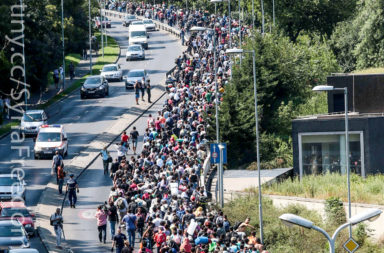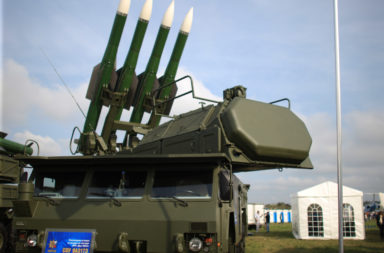Hardly a day goes by when I am not asked by American, British or other non-German friends to confirm or deny that Angela Merkel will soon be removed from office. Those asking the questions are mostly in the same category as commentators who say that Europe could simply not get along without the German chancellor at the helm.
Their concerns often originate from the typical pessimism of the German press, which in the last few weeks has been full of dire news about the weakening of Merkel’s political position, including within her own Christian Democrat party, caused by massive flows of migrants into Germany.
My interlocutors want to know whether Germany will continue to take the lead in finding solutions to the dramatic effects of the ‘great migration’. Or will populist forces carry the day? I believe Europe (and the rest of the world) needs Merkel as a strong, reliable leader. I view her position as much more secure than many observers have suggested. I point to the notable outpouring of support for the refugees among the German population and the major efforts being made to accommodate and integrate the newcomers. Despite complaints of local officials, Germany has both the values and the resources to play its role.
However, the main challenge facing Europe goes deeper. As good as she is, the chancellor is also part of the problem. Even assuming Merkel stays in power, the nations of the European Union are approaching an historic crossroads. Making the right choice will be many times more difficult than confronting the options presented after the fall of the Berlin Wall. The migration crisis is only one of several crises facing Europe, for which its citizens are mostly very poorly prepared.
The heady ‘end of history’ atmosphere in Europe after 1990 was not conducive to good decision-making. Just as new powers such as India and China and the destructive forces of digitalisation were breaking down old institutions, European leaders decided to base their future on an increasingly centralised EU. ‘Deepening and widening’ Europe became the slogan for expanding the EU’s regulatory and bureaucratic scope. This sort of Europe was ill-prepared to meet the ravages of change now affecting the continent.
Their effects have destroyed one illusion after another, and led to a severe loss of trust in the European vision. As the world appeared to be less and less manageable, Europeans began to blame others – big business, Google, third world instability and, as always, the US. As the Europeans use up their stock of scapegoats, the next step is likely to be abandonment of ‘Europe’ itself.
For the time being, Merkel’s strong words have probably saved Europe as we now know it. Repeatedly – over the euro, Russia, energy and now migration – Merkel and her government have exerted leadership by standing firm in shoring up European structures. Austerity was not just about saving money. It was also about protecting the credibility of the European Central Bank. A balanced approach to Russia over Ukraine angered many, but it was the only way to keep intact even a minimum of European consensus. With the refugees, if Germany had not stepped up to define a welcoming, humanitarian approach, European reactions would have been more chaotic.
Unfortunately, none of this solves anything. European politicians have become adept at finding compromises which allow them to fight again the next day. But now the world has caught up with them. The refugees are not going to go away. Neither are the global financial markets which apply pressure to the Europeans in a much more direct way than to the Russians. An approaching difficulty is the collapsing strategic consensus with the US, in spite of extremely strong US-German trade and investment ties.
Well organised society that it is, Germany has already come up with a term to define the solution to this dilemma — ‘die normative Kraft des Faktischen.’ Hard to translate into other languages, but the meaning is clear. In the end, the logic created by reality always wins out. That law sealed the fate of the Soviet Union. It will govern the outcome of other dilemmas, for example, Britain’s relationship with the EU. This formula will lead Europe where it needs to go. We should trust Merkel, battered as she is by the media and even her own political party, to make the right decisions. My message to the chancellor is: ‘We’re with you Angela. Keep it up.’
![]() This article first appeared as an OMFIF COMMENTARY
This article first appeared as an OMFIF COMMENTARY




